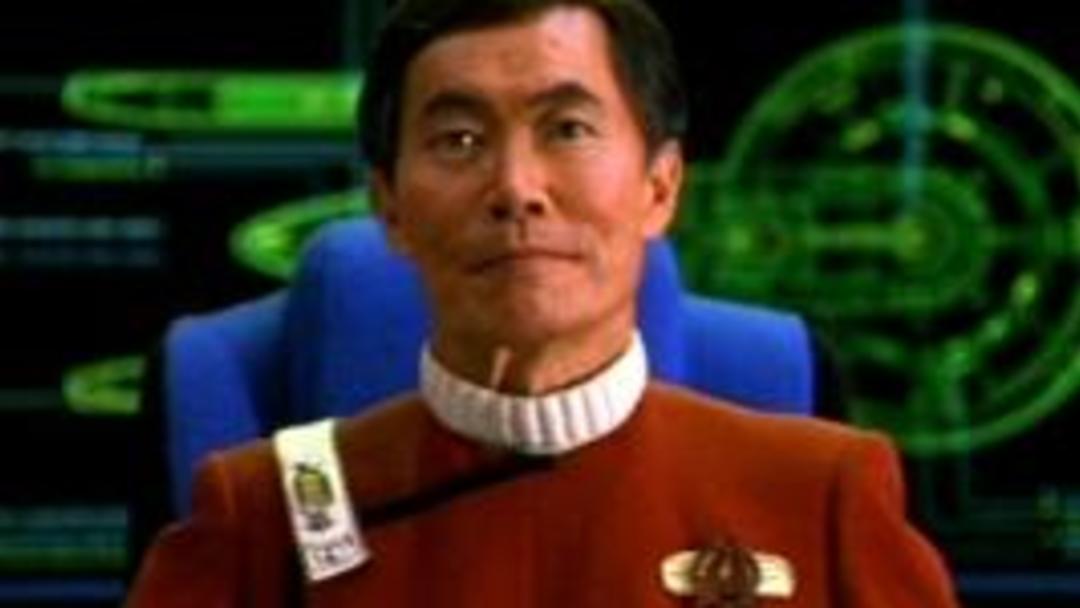George Takei is best known for his role as Commander Sulu on Star Trek. Though the original series only lasted three years in the late 1960s, it became a cult classic in syndication and spawned numerous other series and feature films--several that included Takei.
The actor and longtime activist continues to have a strong fan base--one that has followed him into a uniquely 21st Century realm, Facebook. He made headlines in 2005 when he publicly announced he was gay and introduced his longtime partner, Brad Altman. Takei will be one of the celebrity guests at Comicpalooza this Memorial Day Weekend in Houston. We talked to him about Star Trek, his traumatic childhood and his latest project--a musical.
VisitHouston: First things first, you beat up on William Shatner at his Comedy Central Roast for screwing up the pronunciation of your name for decades. How do you say it?
George Takei: Ta-kay. Vowels in Japanese are pronounced in the same way as Mediterranean languages but the tendency in English is to give it the Germanic pronunciation, Ta-kigh. There actually is a Japanese word pronounced ta-kigh which translated into English means expensive. I've told producers before, "I'll be very happy to accommodate if you insist."
VH: You recently celebrated your 75th birthday. How old do you feel?
GT: I feel like me. I felt like this was when I was 55 and 65. It's a matter of staying healthy... I eat properly, sleep properly, keep my mind alert and engaged. But at the same time you recognize the passage of time. I used to run marathons, but after a running accident a while back and a surgery that didn't fix the problem, I haven't been able to run since.
VH: Anything you can do not to look like Shatner, right?
GT: Oh yes, he's a roly poly. I tell him he's a really BIG actor now.
VH: Have you been to Houston before? What did you think?
GT: Many times before but not in the past decade. It's been much too long. One thing that really stuck out at me. You know I was still running then and runners are dedicated to it no matter where they are. And I remember these Houston runners running in the mid-day heat in summer. And I thought I can't do that. But it's the same in other places. In Boston I remember seeing these guys running along the Charles River in this bone-chilling, frigid weather in their running shorts and really pink legs. I had my long johns on.
VH: Be honest, do you sometimes just hate trekkies?
GT: What do you mean? They're the ones that gave me my career. I believe in loyalty and they supported Star Trek during thick and thin. It's important to remember we were cellar dwellers (in the ratings). Worse than the Klingons were those NBC TV execs who wanted to cancel us three years into our "five year mission." But it was the dedication and support of our fans that kept us on and led Paramount to decide to do a feature film. Now we're in the 21st Century and the second of the J.J. Abrams Star Trek films just wrapped and will be released in 2013. And in 2016, Star Trek will celebrate its 50th anniversary. Gene Roddenberry created this, we acted in it, but it was the fans that made it the phenomenon that it became.
VH: How did you feel as a young actor walking into Gene Roddenberry's creation, this Star Trek universe which we all know now was a metaphor for Earth and all that comes with that.
GT: Precisely because of that it was exciting for me. I was a struggling young actor going from one TV guest shot to another. I had a couple small roles under my belt. I recognized immediately that the character Sulu could be a breakthrough role for me as an actor. But also more broadly for Asian actors, who up to that point were mainly playing stereotypical roles, such as waiters. The larger vision that Gene had, I saw the importance of that and I desperately wanted to be cast. Hollywood likes to play up the drama and tension, so there was a long, cruel wait to find out whether I had gotten it or not. And when I did, I was very excited.
VH: You've been with your husband Brad for many years but it wasn't until 2005 that you came out publicly. What have you experienced in Hollywood since then?
GT: Yes we've been together for 25 years, four of those married (the two wed in California in 2008). It's been a sea change in Hollywood. So many other people have come out. And it's not just actors but directors and producers. Writers now can be comfortably out. The landscape has changed for most people now, although for some of the big leading men it's still an uncomfortable situation. There are people that still feel to maintain their commercial viability they have to remain in the closet.
 |
| George Takei |
VH: I read that as a child during World War II, you were one of the many thousands of Japanese Americans interred in American detention camps. How did that experience shape you?
GT: As you said, the experience itself happened when I was a child. My family was imprisoned from the time I was 5 to 8 years old. After camp, I remember being referred to as the Jap boy by teachers in school. And you know by the way they say it that it's a bad thing. But you think, maybe I deserve it. Our parents had incredible difficulties after camp. We ended up on skid row in Los Angeles, living in horrible conditions. It was very scary for my family. Then as a teenager, I started reading civics books in school, going through all those glorious chapters and realizing that isn't jiving with my experience. I discussed this with my father and with other Japanese Americans who were adults at the time of interment. Of course no one is more arrogant or idealistic than a teenager, and I remember saying to my father and others "how could you have allowed this? I would have organized my friends and gone downtown and protested." Of course my father had my mother and my sister and me to think about. It wasn't that easy. And I regret the things I said to him then. Now, as an adult I have a different impression and an understanding.
But what stuck with me was my father telling me that both the strength and weakness of Democracy is that it's only as good as the actions of its people. Good people have to be involved in the Democratic process. My father was an Adlai Stevenson supporter and he volunteered me to help out with his campaign. That led me to work on other campaigns and become an activist. That continued on, and eventually I was part of the campaign to get redress for the Japanese Americans who were interred, which President Reagan signed in 1988.
VH: It's that interment experience that's prompted your newest project, a musical.
GT: Yes, Allegiance will have its world premiere in San Diego later this summer at the old Globe Theater and will move on to Broadway by winter 2013. We're very excited about it.
VH: You've developed quite a following on your Facebook page. And you come up with some really funny yet poignant things. Do you see social media as the newest form of activism?
GT: It really is. Technology has given us a wonderful tool. It's really an extension of not just activism but fun and sharing. The base of my audience on Facebook is Star Trek fans, then more generally sci-fi fans, then issues-oriented fans and then a little broader humor oriented fans. Humor is a universal language.
For more information about Takei's appearance in Houston, visit Comicpalooza.com.




